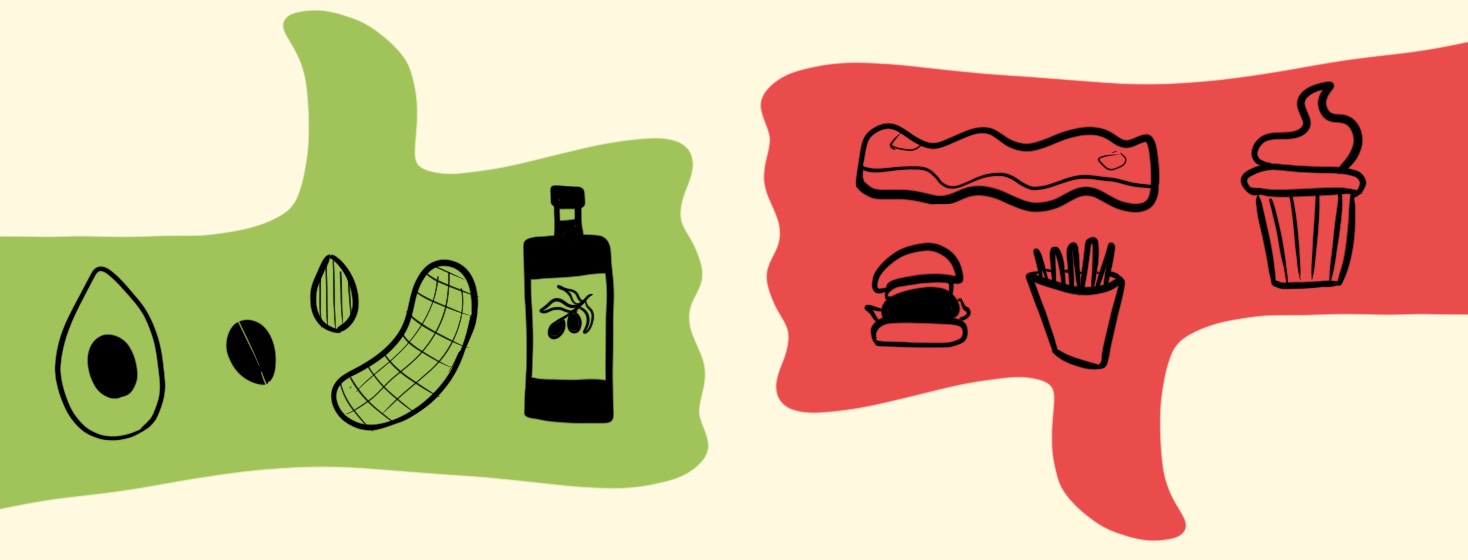Tips for Improving Cholesterol
High cholesterol, sometimes called hyperlipidemia, means having high levels of cholesterol in your blood. There are many factors that may impact your risk of having high cholesterol. Certain HIV medications can increase the risk of high cholesterol.1
What is cholesterol?
Cholesterol is a waxy material made from saturated fat found in the foods we eat. It is a natural part of our bodies and keeps cells healthy. However, if we have too much cholesterol in our blood, it can cause fatty deposits in our blood vessels.2
If these deposits become big enough, it can become difficult for blood to flow through our blood vessels. Also, these deposits can break free and form a clot. These clots or blood vessel blockages can cause heart attacks or strokes.
High cholesterol has no symptoms in most people, but it is easy to check for with a blood test.2
How is high cholesterol related to HIV?
Some HIV medications increase the risk of high cholesterol. For example, protease inhibitors may raise your cholesterol levels. Other HIV drugs have been tied to an increased risk of diabetes. Diabetes is also a risk factor for high cholesterol.3
If you take HIV medication and are concerned about your heart health, talk with your doctor. Together, you can decide to try different drugs or begin regular blood testing. Any changes to your cholesterol levels caused by your medicine should go away if you switch to a different treatment.4
Common risk factors
Other common risk factors for high cholesterol include:2,4
- Poor diet: A diet high in fat, processed foods, or animal products can increase the risk of high cholesterol.
- Smoking: Smoking can damage your blood vessels and make them more susceptible to blockages.
- Obesity: A body mass index (BMI) over 30 increases the risk of high cholesterol.
- Lack of exercise: Exercise is known to lower the risk of heart disease.
- Age: As we get older, our cholesterol levels tend to rise.
- Genetics: A family history of heart disease can increase your risk.
Treatment and prevention
Heart-healthy lifestyle changes can have a direct impact on treating or preventing high cholesterol.
Choosing healthy foods is important because our diets are a source of saturated fat. Here are some tips for what to eat:2,3
- Eat lots of fruits, vegetables, and whole grains.
- Avoid foods with a lot of saturated fat like fried food, cheese, or fatty meat.
- Increase the fiber in your diet.
- Limit processed or sugary foods.
- Limit fatty meat or trim the fat and skin off your meat.
- Try to eat healthier fats, like olive oil, nuts, or fish.
Other things to try besides focusing on your diet:2,3
- Aim for 30 minutes of moderate exercise a day. Check with your doctor before beginning a new exercise routine.
- Quit or cut down on smoking.
If lifestyle changes alone cannot lower your cholesterol, your doctor may recommend a drug to treat it. There are many different drugs to choose from. Your doctor can recommend the one that is best for you.2

Join the conversation